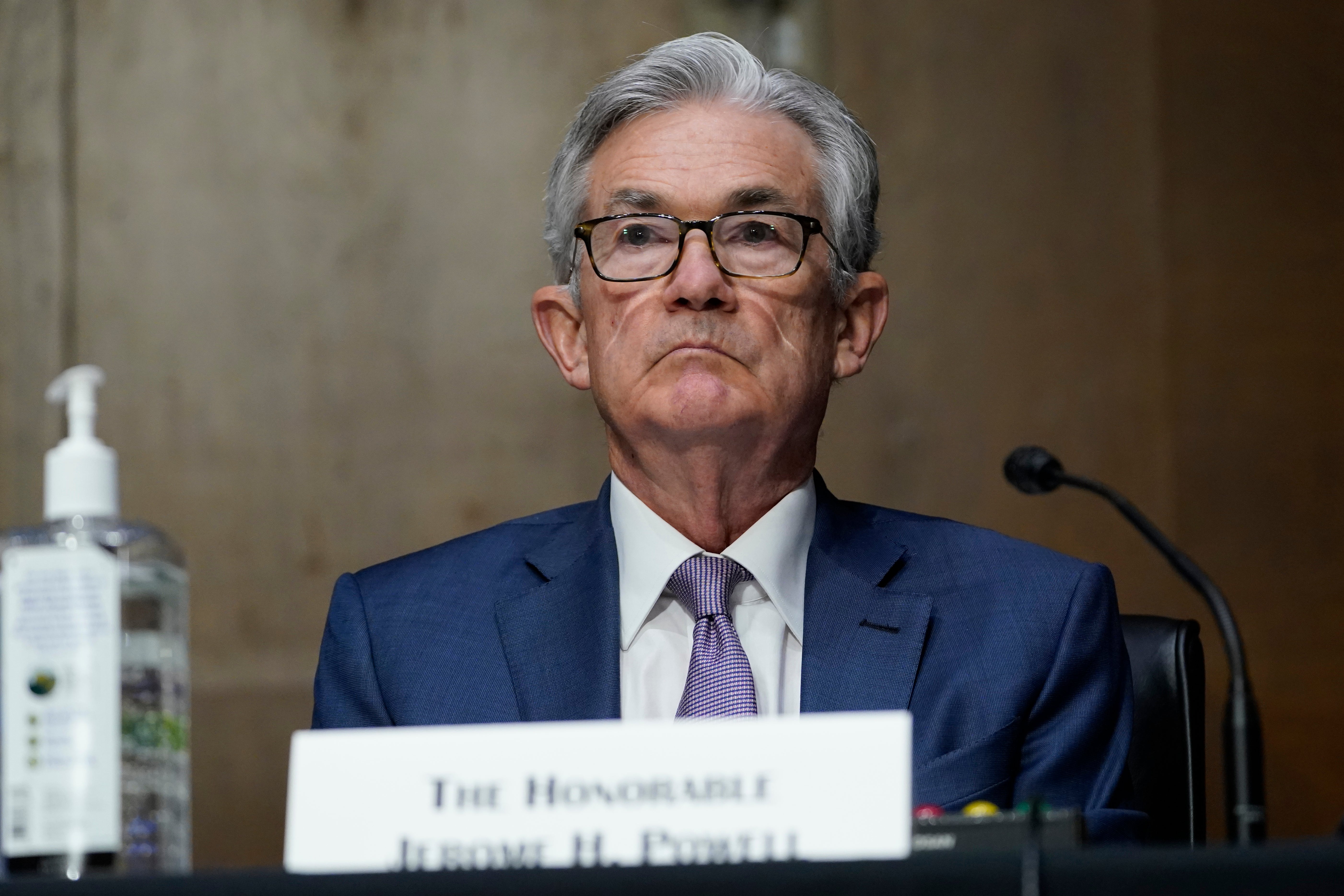Fed to end relaxed capital requirements for large banks
The Federal Reserve says it will restore capital requirements for large banks that were relaxed as part of the Fed’s efforts to shore up the financial system during the early days of the pandemic

Your support helps us to tell the story
From reproductive rights to climate change to Big Tech, The Independent is on the ground when the story is developing. Whether it's investigating the financials of Elon Musk's pro-Trump PAC or producing our latest documentary, 'The A Word', which shines a light on the American women fighting for reproductive rights, we know how important it is to parse out the facts from the messaging.
At such a critical moment in US history, we need reporters on the ground. Your donation allows us to keep sending journalists to speak to both sides of the story.
The Independent is trusted by Americans across the entire political spectrum. And unlike many other quality news outlets, we choose not to lock Americans out of our reporting and analysis with paywalls. We believe quality journalism should be available to everyone, paid for by those who can afford it.
Your support makes all the difference.The Federal Reserve says it will restore capital requirements for large banks that were relaxed as part of the Fed’s efforts to shore up the financial system during the early days of the pandemic.
The Fed said it will not extend the relief from what is called the supplementary leverage ratio past March 31. The easing of the regulation had been intended to give banks flexibility in what assets they could hold to meet regulatory' requirements during the turmoil of the pandemic, when banks were having to suddenly write down billions of dollars of loans.
The banking industry had lobbied for an extension of the relief but on Thursday the Fed said that since the requirements were relaxed last year “the Treasury market has stabilized.”
Shares of the large Wall Street banks fell in early trading, with JPMorgan Chase and Wells Fargo down around 3%. The Dow Jones Industrial Average dropped 263 points, or 0.8%. The yield on the 10-year Treasury rose to 1.74% from 1.70%
The supplementary leverage ratio requires large banks to hold capital equal to about 3% of their assets. The required ratio is higher — 5% — for banks that are deemed most important to the overall financial system The rule was adopted as part of regulatory reforms after the 2007-2008 global financial crisis and recession. The idea was to ensure that banks kept enough capital on hand to survive market meltdowns.
Yet the rule has also been blamed for magnifying the turmoil that erupted in the financial markets a year ago when the pandemic first hit hard. Banks foreign central banks and hedge funds, among others, had desperately sought to dump Treasurys and other bonds to raise cash. Treasury yields spiked in response. To calm the lending markets, the Fed stepped in to buy hundreds of billions of dollars of Treasurys on its own.
The financial industry argues that the rule discourages banks from holding Treasurys because doing so increases their assets and reduces their supplementary leverage ratio. This undermines their ability to act as intermediaries in the Treasury market and facilitate trading, banks assert.
Another issue is that the Fed's Treasury purchases have flooded the banking system with cash reserves. These reserves lower a bank's SLR by increasing its assets. Total bank reserves now stand at nearly $3.5 trillion, up from roughly $1.5 trillion before the pandemic.
Treasurys are considered low risk and cash reserves are regarded as risk-free. But the SLR, unlike other bank capital requirements, doesn't take risk into account.
A year ago the Fed temporarily exempted Treasury securities and cash reserves from the SLR calculation. That exemption is set to expire March 31. Bank lobbyists argue that without an extension of the exemption, large banks will be less likely to hold Treasury securities.
If that were to happen, interest rates could rise, making loans more expensive. The yield on the 10-year Treasury serves as a benchmark for mortgage rates and other borrowing costs. Banks also say that ending the exemption will discourage them from making loans, which would reduce their capital.
But some high-profile Democrats in Congress oppose continuing the exemption, thus heightening the pressures the Fed is facing. Earlier this month, Sens. Elizabeth Warren D-Mass., and Sherrod Brown, D-Ohio, urged Fed Chair Jerome Powell and other top banking regulators to reject the banks' push for an extension.
“The banks' requests for an extension of this relief appear to be an attempt to use the pandemic as an excuse to weaken one of the most important post-crisis regulatory reforms,” the senators wrote.
If banks worry about running short of capital, Warren and Brown said, they could bolster their balance sheets by suspending dividend payouts.
“We are also confident that the thousands of community banks that are not subject to the SLR requirements would be happy to accept deposits that large banks may reject,” they said.